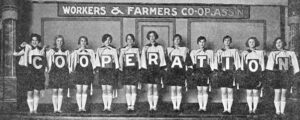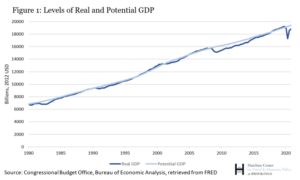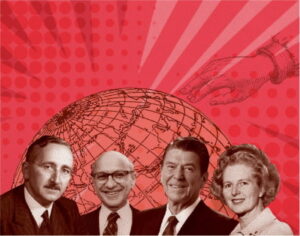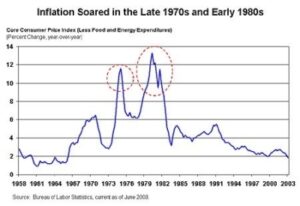While my next sentence might seem petty, I do feel it’s appropriate for me to reveal that for some reason I can’t quite identify, I find Richard Wolff’s style of presentation to be annoying.
Having said this, I find his ideas on how workers cooperatives can democratize and potentially “cure” capitalism to be interesting, even compelling.
Table of Contents
Can workers cooperatives cure capitalism?
The video below is from the series “Talks at Google”. In it, Professor Wolff discusses this idea, from his book “Democracy at work: A Cure for Capitalism“.
He starts with some well-known criticisms of capitalism, and it’s hard to argue that those criticisms are misguided.
He ends with a discussion of workers cooperatives.
This post is a summary of the video, not a word-for-word transcript.
People trying to analyze economies disagreed, in big ways, since forever
The differences characterizing how different people analyze and explain economic systems are big.
And ideas come in and out of favour when we experience some economic event that indicates the current economic ideas “are broken”.
For example, the laissez-faire capitalism of the late 19th and early 20th centuries was considered broken when the extended high unemployment (20% to 25%) of the great depression occurred.
So it was replaced.
And the state-interventionist post-Keynesian capitalism (which was dominant from 1945 to around 1975) was considered broken when the stagflation (simultaneous high unemployment and high inflation) of the 1970s occurred.
So it was replaced.
And the neoliberal capitalism that replaced it, which contained many ideas from the prior laissez-faire capitalism, was considered broken when the global financial crisis crashed in 2008.
Now what?
Some argue the problems of capitalism go far deeper
In which case a discussion of how “hands-off” or “state-interventionist” capitalism should or shouldn’t be is off-target.
These people consider that entire discussion to be secondary. Their criticism is that capitalism is organized wrong.
They criticize that power is too centrally concentrated
The dominant institution today where what we call production occurs is the corporation.
The corporation has two primary decision-making bodies.
The shareholders are one, their decision-making influence is indirect, as their influence is to elect the board of directors, which they do every year. Having said that, some major shareholders are more hands-on than most shareholders.
The other is that board of directors who are the direct decision-makers.
Their criticism is that decision-making is too highly concentrated into too few hands.
They argue that this very structure causes the failures of capitalism.
The most well-known such critic was Karl Marx
Professor Wolff then gives an overview of some important things that influenced the thinking of Karl Marx, which I think are worth mentioning.
Karl Marx was born in 1818, which was 19 years after the French Revolution.
Marx was an admirer of the French Revolution and took their slogan of “Liberty, Equality, Fraternity” to heart.
To Marx, the French had thrown out feudalism and embraced capitalism, which was expected to deliver the promised liberty, equality, and fraternity, which he saw as being democratic.
Marx moved to London in 1849 (at the age of 31), and lived there until he died in 1883 (at the age of 64).
So, starting 51 years after the French revolution, the capitalism Marx saw was the capitalism of Victorian England. It was the capitalism described by Charles Dickens in his various novels.
It was not delivering the democracy Marx thought was promised by the conversion from feudalism to capitalism.
Marx concluded that while the transition from feudalism to capitalism was wonderful, capitalism was not capable of delivering on the promise of liberty, equality, and fraternity.
Marx then devoted his life to answering the question “Why not”? What was it about 19th-century capitalism that prevented it from delivering on that promise?
An important conclusion of Karl Marx
Marx concluded that not only was capitalism unable to deliver on the promise of liberty, equality, and fraternity, but that capitalism was a fundamental obstacle to ever achieving it.
And therefore, if humans really wanted liberty, equality, and fraternity, they would need to devise a system other than and different from capitalism.
NOTE: This is not something Professor Wolff says, but I think in modern usage, workers cooperatives fit into capitalist economies. The fact is, there are large numbers of workers cooperatives in existence in capitalist economies today. He later mentions a well-known example, which you’ll see soon.
How did Marx come to this conclusion?
Marx looked at how work is organized in corporations (and other not too dissimilar ownership structures), and his analysis went as follows:
The shareholders decide who will serve on the board of directors through the annual election. Per the rule of one share one vote, the people who own the most have the most influence.
The board of directors (generally 12 to 15 people) makes all the key strategic decisions about what to produce, how to produce it, where production occurs, what to do with profits, etc, etc.
Meanwhile, there are a large number of employees who live with the decisions made by the board of directors and major shareholders but have no input into that decision-making process.
And, in the pursuit of profits and shareholder returns, the decisions made by the board and the major shareholders do not necessarily (and often simply do not) take the well-being of the employees into consideration.
As such, capitalism contains very highly centralized economic decision-making, in which the vast majority of people involved must live with the consequences of those decisions, but are excluded from participating in making those decisions, both legally, and in practice.
Due to the inherent nature of how this is structured, it is not democratic.
This is why, capitalism, in spite of all the hopes and dreams of liberty, equality, and fraternity, is simply unable to deliver on those promises.
Decisions tend to benefit the decision makers
This is a general observation, but in terms of capitalism:
It should not be surprising that the board and the major shareholders would decide to give much of the corporate profits to themselves.
It should not be surprising that the board and the major shareholders would decide to automate and reduce headcount when that increases their profits.
Professor Wolff mentions a dynamic built into this system which could be described as ironic (at least I see it that way).
It often happens that the aggregate social cost of reducing headcount through automation or factory relocation (unemployment insurance, welfare, crime, etc) exceeds the profits gained by doing so.
But, the profits go to the board and the major shareholders whereas the costs to society do not.
And this is why “state ownership” fails too
According to Professor Wolff, the “socialist ownership” of firms as practiced in the Soviet Union was not what Marx proposed.
It retained the fundamental problem is highly centralized decision making, where the decisions tended to benefit the relatively small set of decision-makers.
Highly centralized decision-making is antithetical to ever getting liberty, equality, and fraternity because highly centralized decision-making just doesn’t do that.
Why the rate of pay is so significant
Everyone knows that in a capitalist system, an employee will be hired at a certain rate of pay when there is a reasonable expectation that their contribution will generate more than the rate of pay in revenue to the firm.
The example he uses is no one will hire someone at $20 an hour if the expectation is their output can be sold for $19 an hour.
Per Marx, that concept is THE basis for how capitalism works. He wrote of workers producing a surplus over what they are paid.
What capitalism has delivered
Per Professor Wolff, capitalism has delivered:
Stunning instability: The booms and busts of the business cycle are built into the system and downturns occur approximately every four to seven years and have done so for 300 years.
Mindbending inequality: This is a direct result of highly centralized decision-making and also occurred in the former Soviet Union, for the same reason, although the highly centralized decision-makers were government appointees and not the board and the major shareholders.
NOTE: While the above is undeniably true, he leaves out that capitalism has also produced material wealth far in excess of any prior system.
And, per a book written by John T Harvey (a different economics Professor and one whom I very much enjoy listening to) titled Contending Perspectives in Economics, Marx appreciated that capitalism would create enormous material wealth and he saw it as necessary before society could move to the next “level”, where this concept of “levels of society” was central to how Marx thought about things.
The “levels of society” idea is something he picked up from the German philosopher Hegel and is part of what is called Hegelian philosophy, which deeply influenced Marx, per John T Harvey.
But, we’ve learned to ignore these criticisms
Professor Wolff mentions how in all his university and economics education, he was never taught what Marx wrote and what he learned he learned on his own.
This is in spite of the fact that he does have prestigious degrees: An undergraduate degree from Harvard, a master’s degree in economics from Standard, then to Yale for another master’s degree in economics, a master’s degree in history, and a Ph.D. in economics. And through all that, he was never assigned even one word of Marx.
Why? Because of the cold war, his professors were afraid to introduce Marx into the curriculum out of a perception that it would look like support for our cold war enemy, the USSR, who was considered to be running a Marxist economy.
Professor Wolff strongly implies that American capitalism has suffered greatly from a lack of studying the analysis of the criticisms of capitalism written by Karl Marx.
What would “democratic capitalism” look like?
Make major decisions within corporations on the basis of one person one vote.
These organizations exist, and are called “workers cooperatives”.
They’re not new, and they exist in many countries around the world, including the United States and Canada.
The most famous example is the Mondragon Corporation in Spain. This workers cooperative started in 1956 with seven people, and today is 95 separate workers cooperatives, employing 80,000 people, operating 14 research and development centres, 141 production plans in 37 countries, and selling products and services in more than 150 countries.
The Mondragon Corporation has two very interesting rules.
- The workers hire, evaluate, and if needed, fire, the managers.
- The highest-paid person can earn no more than eight times the lowest-paid person.
How would we politically justify workers cooperatives?
Is personal choice not part of freedom?
Is giving American workers the ability to choose to form such workers cooperatives not an enhancement of our freedoms?



